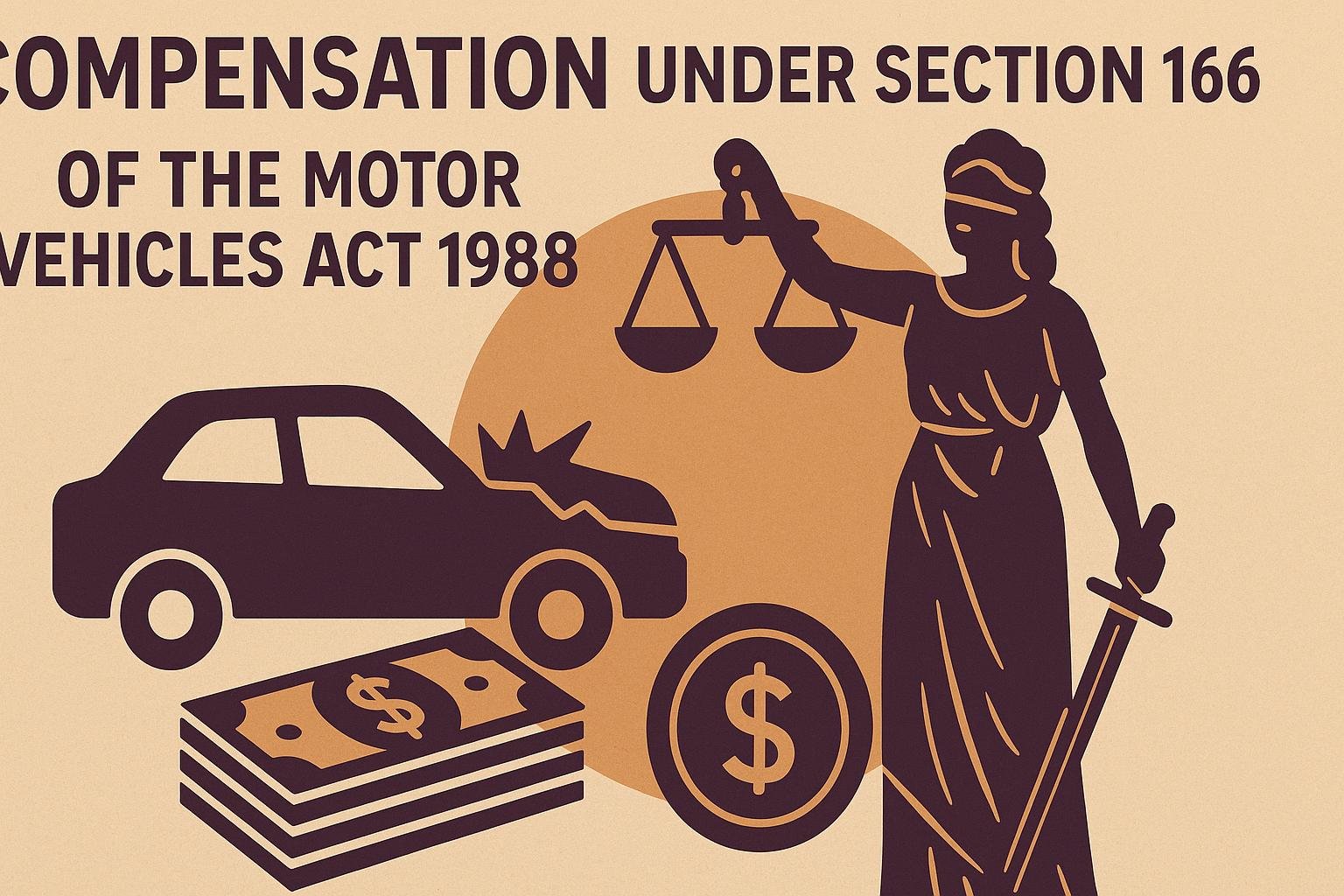Section 166 of the Motor Vehicles Act, 1988 (hereinafter referred to as “the Act”) forms the procedural backbone for claiming compensation arising out of motor vehicle accidents. The provision is remedial in nature and must be interpreted liberally to advance the purpose of social justice underlying the statute. It empowers affected parties—including victims, legal representatives, and dependents—to institute claims before the Motor Accident Claims Tribunal (MACT) for injuries, death, or damage resulting from motor accidents involving negligent driving.
Statutory Text of Section 166 (as amended)
Section 166(1): An application for compensation arising out of an accident of the nature specified in sub-section (1) of section 165 may be made—
(a) by the person who has sustained the injury; or
(b) by the owner of the property; or
(c) where death has resulted from the accident, by all or any of the legal representatives of the deceased; or
(d) by any agent duly authorized by the person injured or all or any of the legal representatives of the deceased, as the case may be.
The proviso to Section 166(3), introduced via the Motor Vehicles (Amendment) Act, 2019, removed the previous time limitation of six months, reinforcing the liberal interpretation of claim rights.
Nature and Scope
Section 166 is a beneficial provision, aimed at ensuring expeditious and efficacious compensation for accident victims or their dependents. Unlike a conventional civil suit under tort law, proceedings under Section 166 are summary in nature and grounded in no-fault liability principles (see also Section 140).
The essential ingredients are:
– Occurrence of a motor accident
– Use of a motor vehicle
– Negligence of the driver or owner
– Injury or death caused as a consequence

